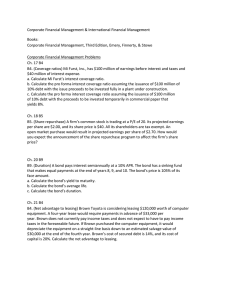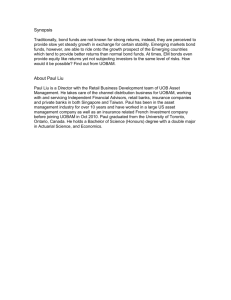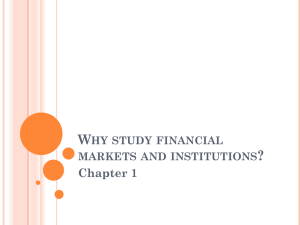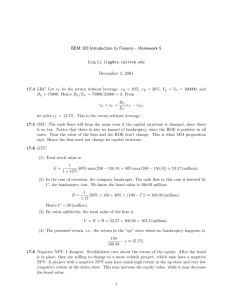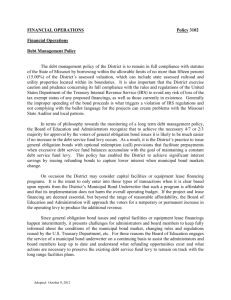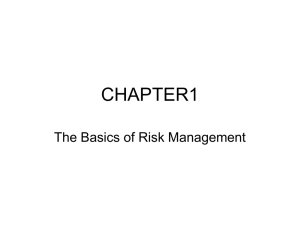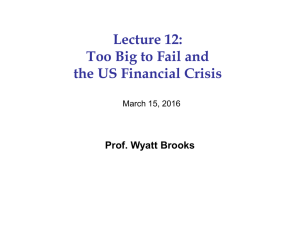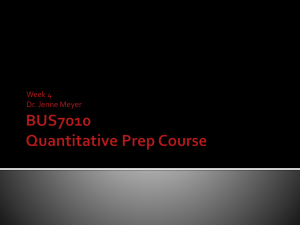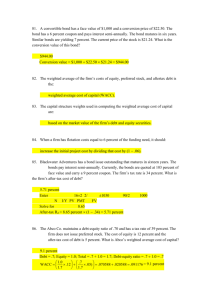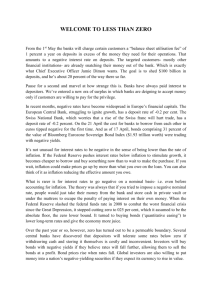WHY STUDY FINANCIAL MARKETS AND INSTITUTIONS?
advertisement
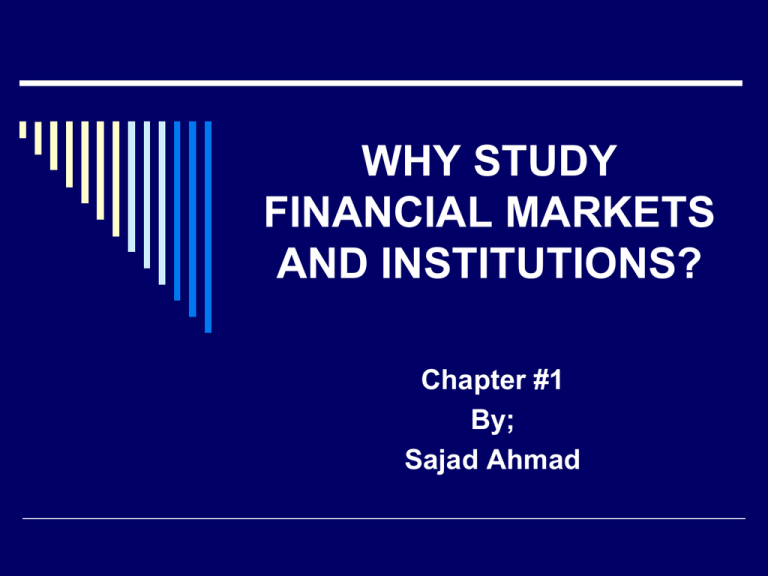
WHY STUDY FINANCIAL MARKETS AND INSTITUTIONS? Chapter #1 By; Sajad Ahmad What is Financial Market? All institutions and procedures for bringing buyers and sellers of financial instruments together is called financial market. Financial Markets are the markets in which funds are transferred from people who have an excess of available funds to people who have a shortage Financial Markets are important in channeling funds from people who do not have a productive use for them to those who do TYPES OF FINANCIAL MARKETS DEBT MARKET STOCK MARKET FORIEGN EXCHANGE MARKET DEBT MARKETS and INTEREST RATES Debt Markets, also often referred to generally as the Bond Markets. are especially important to economic activity because they enable corporations/ governments to borrow to finance their activities Bond Markets are the markets where interest rates are determined A bond is a debt security that promises to make payments for a specified period of time A security ( also called a financial instrument ) is a claim on the issuer's future income or assets THE INTEREST RATES The interest rate is the cost of borrowing or the price paid for the rental of funds which is usually expressed as a percentage Interest Rates are important on a number of levels On a personal level, high interest rates could deter you from buying a house or a car because the cost of financing it would be high Conversely, high interest rates could encourage you to save because you can earn more interest income by putting aside some of your earnings as savings THE STOCK MARKETS The Stock Markets are the markets in which claims on the assets and earnings of corporations ( share of stock ) are traded A common stock ( typically just called a stock) is a security that represents a share of ownership in a corporation It is a claim on the earnings and assets of the corporation Issuing stock and selling it to the public is a way for corporations to raise funds to finance their activities THE FORIEGN EXCHANGE MARKET For funds to be transferred from one country to another, they have to be converted from the currency in the country of origin ( say $ ) into the currency of the country they are going to ( say Euros ) The foreign exchange market is where this conversion takes place It is where the foreign exchange rate, the price of one country's currency in terms of another, is determined Why Study Financial Markets? Financial markets, such as bond and stock markets, are crucial in our economy. These markets channel funds from savers to investors, thereby promoting economic efficiency. Market activity affects personal wealth, the behavior of business firms, and economy as a whole Why Study Financial Markets? Well functioning financial markets, such as the bond market, stock market, and foreign exchange market, are key factors in producing high economic growth. We will briefly examine each of these markets; WHY STUDY FINANCIAL INSTITUTIONS Financial Institutions are the institutions that make financial markets work “Financial Institutions are the intermediaries, that take funds from the people who save and lend it to people who have productive investment opportunities”. STRUCTURE OF THE FINANCIAL SYSTEM If you wanted to make a loan to IBM or General Motors or any other company , for example, you would not go directly to the president of the company and offer a loan. Instead you would lend it to such companies indirectly through financial intermediaries institutions such as commercial banks, insurance companies, leasing companies etc CENTRAL BANK / COMMERCIAL BANKS/ OTHER INSTITUTIONS Central Bank, the government agency responsible for the conduct of monetary policy, which in Afghanistan is the “Da Afghanistan Bank”. Commercial Banks, are the financial institutions, that accept deposits and make loans Other financial institutions include Leasing Companies, Insurance Companies, etc Why Study Financial Institutions? We will also spend considerable time discussing financial institutions. These institutions play a crucial role in improving the efficiency of the economy. We will look at: 1. Central Banks and the Conduct of Monetary Policy 2. Structure of the Financial System Helps get funds from savers to investors Why Study Financial Institutions? 3. Banks and Other Financial Institutions Includes the role of insurance companies, mutual funds, pension funds, etc. 4. Financial Innovation Focusing on the improvements in technology and its impact on how financial products are delivered 5. Managing Risk in Financial Institutions Focusing on risk management in the financial institution. END OF CHAPTER #1
